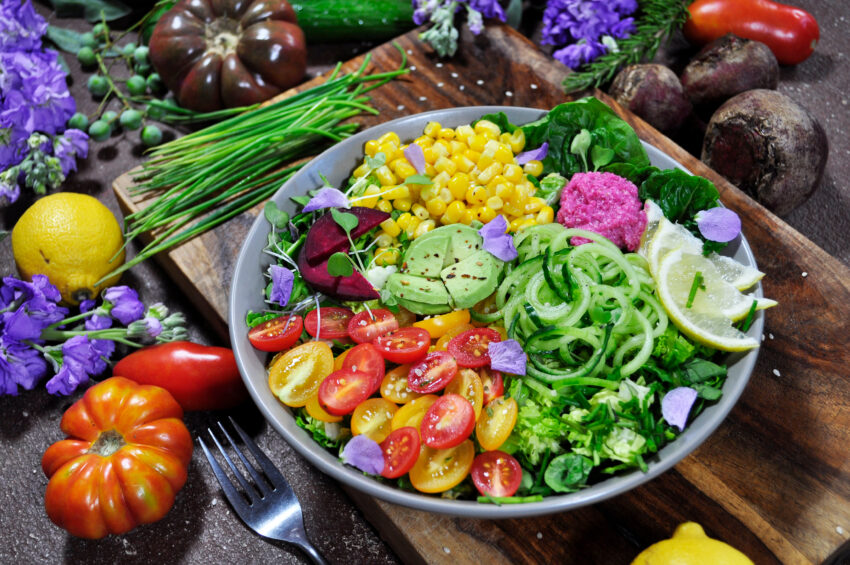Yorkshire startups vie for a slice of the meat and dairy substitute pie
When Castleton Mill in Leeds opened almost 200 years ago it housed steam-powered flax spinning machines. These days the former textile mill is part of another Industrial Revolution – the shift to plant-based food. Read more: Yorkshire startups vie for a slice of the meat and dairy substitute pie


When Castleton Mill in Leeds opened almost 200 years ago it housed steam-powered flax spinning machines. These days the former textile mill is part of another Industrial Revolution – the shift to plant-based food.
The renovated mill, now a pet-friendly co-working space with a private bar, is home to alt-milk brand Mighty, one of the growing number of plant-based food companies based in Yorkshire.
Tom Watkins, who co-founded Mighty with his brother Nick, says the county is fast becoming the Silicon Valley of plant-based food. “There are some absolutely fantastic companies and brands coming out of this area,” says the hoodie-wearing entrepreneur from across the company’s board table in what used to be the mill’s furnace.
“We’re a family business and never entertained the notion of being anywhere else,” adds Nick. “We love it here and the people we have access to are incredible.”
The list of plant-based companies in Yorkshire includes established names like Quorn as well as new ones like Meatless Farm, Plant and Bean, Over the Spoon and VFC. There is another crop coming up behind them, with almost 20 alt-food brands established in Yorkshire in the past year alone, according to Companies House data.
Thijs Geijer, an economist at ING Research, says these emerging clusters are a “bit of a trend”. “In the US there’s the Protein Highway in the Midwest and in the Netherlands there’s Vegan Valley in the eastern part of the country.”
The prize is a big one for the entrepreneurs who get it right. After a rapid growth spurt during the pandemic UK retail sales of alt-meat and dairy products are now more than £1bn a year.
The demand for alt-meat and dairy products has been fuelled by consumer interest in health, animal welfare and sustainability, which was heightened during the pandemic. But with households budgets now being squeezed by inflation the “big question” says Geijer, is whether they will keep buying more of what are often more expensive products.
Shares in Swedish alt-milk producer Oatly crashed about 20% one day in November on warnings about production delays and inflation, and have continued their slide since then. The share price of alt-meat firm Beyond Meat is also depressed after sales declined in the last three months of 2021. Ethan Brown, its chief executive, said he didn’t know if it was “an aberration or a harbinger of things to come”.
However, with its quarter pounders, sausages and chicken breasts shaped from pea protein, Meatless Farm thinks the future is bright. It has raked in £30m from investors and is currently finalising another fundraising.
The brightly coloured graphic painted on the facade of its office in The Calls makes it one of Leeds’ most Instagrammed spots. In jeans and trainers Michael Hunter, the UK managing director, says the six-year-old company’s sales are expected to triple to £31m this year.
It has a big market to chase: UK retail sales of meat substitutes hit £600m in the UK last year, according to Mintel, a figure it forecasts to reach £855m by 2026.
With its exposed brick walls, the office feels like a trendy warehouse apartment. Founded in 2016, the company benefits from links with local universities. Hunter says that it would be prohibitively expensive to have the same set-up – the office includes a development kitchen – in London. It now has 120 staff, about half of whom are based in the UK.
In the kitchen there are containers of the pea protein that is the key ingredient in its food. The pale brown colour of Rice Krispies, the texture varies from a fine mince to chicken nugget-sized chunks. This unpromising-looking substance is transformed with the help of vegan beef stock, as well as beetroot, caramelised carrot and blueberry (to create the meat colour), says Ronnie Hayes, its innovation chef. Flecks of coconut and shea butter help replicate the sizzle of a beef burger as it cooks.
The company aims to keep ingredients to a minimum. “Everyone looks at the back of the pack and if it looks like a chemistry set they might say that is not for me,” explains Hunter. “The hard thing is keeping the ingredient deck really clean but at the same time delivering a product that people go, wow, that is just like a meat burger.”
On the top floor, with views across the city, a handful of beanie-hatted colleagues are tapping away on laptops, but on a Thursday morning it feels empty. “We have always been very flexible,” says Hunter. “Even when we talk to our customers, the buyers of the major retailers, they’re not in the office five days a week.” To cater for this new arrangement the company hires Airbnb properties near their homes for tastings.
These plant-based food businesses are benefiting from a large hinterland of food expertise with the large county home to two leading supermarket chains, Asda and Morrisons, as well as the skilled work forces of large food groups, including Arla.
The Watkins brothers, both in their 30s, started Mighty four years ago having spent the previous decade helping other companies get their products listed in UK supermarkets.
With sales of plant-based alternatives to milk worth about £400m a year, the brothers saw a window of opportunity to do their own thing. But they are elbowing their way into a crowded marketplace that includes deep-pocketed rivals Oatly and Nestlé.
Last year the company dropped Pea from its name because people associated the name with “something green that tastes like peas” says Nick. They think they are on to something with its new M.LK range, which like its other products is made with yellow split peas, but they reckon tastes “closer to milk than has ever been seen before”.
It is getting noticed. So far Mighty has raised £8m with the most recent round, for £4.5m, led by two of Germany’s brewing dynasties: the Bitburger and Schadeberg families.
The firm’s secret weapon, says Tom, is Aleksander Gontarz, its head of innovation and technical, who he describes him as the “Heisenberg of plant-milk – a reference to Walter White’s alter ego in Breaking Bad, the TV series about a chemistry teacher who became a kingpin in the methamphetamine drug trade. “He’s just extraordinary and knows this world inside out.”
With M.LK it aims to convert cow’s milk drinkers, who still spend £3bn a year on the white stuff, explains Tom. “For Tarquin in Shoreditch who drinks pea milk, that’s an easy win but it’s a harder sell to Gary in Sheffield, who’s perhaps not used to what dairy alts can be,” he says.
“Nestlé made a pea milk and we know from the supermarket data that we are still out selling Nestlé three to one,” he adds. “So yes, of course, big wallets help but they don’t necessarily dictate that you’re going to win. One the best things about grocery is it’s about the product. Customers vote with their feet.”
Read more:
Yorkshire startups vie for a slice of the meat and dairy substitute pie






















